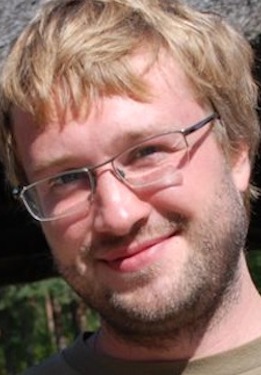Brain Machine Interfaces
Dienstag 22. Nov. 2011, 16.00 Uhr Kollegiumg. 2, Interface Cultures, 4.OG
Sebastian Maella und Aleksander Valjamae referieren zum Thema "Brain Machine Interfaces".
Multimodal Display of Brain and Body Signals in Collaborative Experiences
Using a Tabletop Interface and Physiology-driven Tangible Objects.
Physiological Computing has been applied in different disciplines such as Human-Computer Interaction, neuroscience and medical rehabilitation, and is becoming widespread due to device miniaturization and improvements in real-time processing. However, most of the current physiology-based technology focuses on single-user paradigms and traditional Graphical User Interfaces. Therefore, its application in collaborative scenarios is still emerging. Our work explores how sonification and visualization of human brain and body signals, and its presentation through tangible objects (physiopucks), can enhance user experience in collaborative, multiuser tasks. We present a multimodal interactive system built using a musical tabletop interface (Reactable) and an electro-physiology sensing system measuring Electroencephalogram (EEG) and heart rate (Enobio headset, Starlab) that allows performers to generate and control sounds using their own or their fellow team member’s physiology, and visualize all ongoing processes in an interactive surface.
mtg.upf.edu/project/teclepatia
vimeo.com/groups/main/videos/14675468
Biographies
Aleksander Väljamäe
Aleksander Väljamäe has received his PhD in applied acoustics at Chalmers University of Technology, Gothenburg, Sweden, in 2007. During his PhD studies concerning multisensory perception he has being a visiting researcher at University of Barcelona (Dr. Soto-Faraco) and NTT Communication Science Labs, Japan (Dr. Kitagawa). He has being active in a number of EU funded projects: POEMS, PRESENCCIA, BrainAble, Future BNCI. In 2007-2010 he has being a postdoc and a psychophysiology lab director at Laboratory for Synthetic Perceptive, Emotive and Cognitive Systems (SPECS), Universitat Pompeu Fabra, Barcelona, Spain, obtaining several grants as PI from national Spanish funding (TEC2009-13780, TEC2010-11599-E). Currently he is a senior postdoctoral researcher at BCI Lab, Technical University of Graz, Austria. His psychophysiology research concerns how audiovisual media influence humans on perceptual and cognitive level, with particular stress on the novel methods for diagnosis and treatment of various brain disorders (e.g. autism, depression, chronic pain, migraine) and new applications (BCI, neurocinema).
Sebastián Mealla C.
Sebastián Mealla C. holds a B.S. in Audiovisual Communication and a MSc. in Cognitive Systems and Interactive Media. He is a PhD candidate in the Music Technology Group (MTG) of Universitat Pompeu Fabra (UPF), Barcelona, working within the Musical and Advanced Interaction team, specialized in tabletop and tangible interaction in areas of interest beyond the musical performance domain. Mealla’s research work focuses on Human-Computer Interaction (HCI) and Physiological Computing, publishing articles and conducting workshops in Europe and the Americas. In 2008, he received the MAEC- AECID scholarship to pursue his research on neuroscience and HCI at UPF and, since then, has obtained the support of the Ministry of Science and Innovation of Spain (TEC2010-11599-E) and of Starlab Living Science for the development of Brain-Computer Interfaces for multimodal interaction.
mtg.upf.edu/research/areas/interaction

